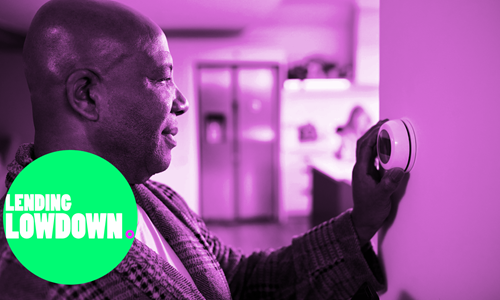How to package the perfect mortgage case
Tuesday, October 5, 2021
Doing business with us shouldn’t be hard work.
It should be clear, quick and simple. Always. That’s why we’ve created ‘The lending lowdown’ – a series of helpful content that highlights how we do business and makes your life easier.
To kick things off, we’re giving you the lowdown on how to package the perfect mortgage case – and give your clients the best chance of success.
We’re on the case
We know people come in all shapes and sizes. And that there’s no such thing as normal these days. So our underwriters review every single application on a case-by-case basis.
That means we know exactly what’s tripping brokers up when it comes to packaging a case. And we know exactly what info you need to help you avoid mistakes, referrals and declines.
So the next time you start a mortgage application, you’ll have an open and shut case.
Top tips to package your case for success
Now you know the most common reasons for applications being delayed, referred or declined, it’s time to get the lowdown on packaging the perfect case.
The biggest queries we get from brokers is around bank statements and proof of deposit – so we’ll go into them in more detail below.
But to get you started, here’s our top five tips for getting your clients’ applications right first time, every time:
- Concentrate on the checklist. This will help you submit the right documents so we can get your case to offer as quickly as possible
- Only give us what we ask for. Giving us additional info, like excess bank statements, can cause delays
- Upload all your docs together. It makes it easier to review the case if you hang on applying until you have every document
- Give us a reason. Leave a note on the portal to highlight anything to us that you think we may query
- Give us a call. If you have a question about the checklist, give our sales hub a call or contact your local BDM
How to provide bank statements
All the information we need from bank statements is detailed in our checklists. But brokers might be used to working with other lenders who do things differently.
So here’s some of the main points to bear in mind:
- Bank statements should show the latest three months – in full, consecutive pages with no gaps.
- Bank statements should evidence employment income
- If your client is self-employed, provide one month’s personal bank statements and three months’ business bank statements
"When it comes to reviewing bank statements, remember we’re not making a judgement on your clients’ lifestyles."
How to provide proof of deposit
When it comes to providing proof of deposit, one of the most common issues we see is when brokers select ‘savings’ rather than ‘gift’ when that’s not the case.
This means the system doesn’t generate the correct checklist items and asks you to provide the wrong docs – so it’s important to get this right.
Providing proof of a gifted deposit
Research from Legal & General* recently found that lending from generous families and friends added up to £6.3bn in 2019. That effectively makes ‘the bank of mum and dad’ the 11th largest mortgage lender in the UK.
"We’re more than happy to accept gifted deposits from immediate family members – and we’ll consider gifts from other family members on a case-by-case basis."
If your client’s deposit is from generous family, we’ll need:
- Proof of funds leaving the donor’s account and going into the buyer’s account (this is our preference but the deposit can still be in the donor’s bank account)
- A completed gifted deposit/equity declaration form to confirm the deposit is a non-refundable gift and not a loan
- We will attempt to identify the donor electronically, if this fails, we will require proof of ID
- If all this information is given to us upfront, it’ll help save time and get your client’s case to offer as quickly as possible.
Make the most of the help available to you
Now that you’ve got the lowdown on packaging a case, you should be able to submit mortgage applications with confidence.
But if you’ve got any questions about your case, you can always speak to your local business development manager. And once you’ve submitted an application, you’ll have full access to your own dedicated underwriter.
Now that’s how we do business.



